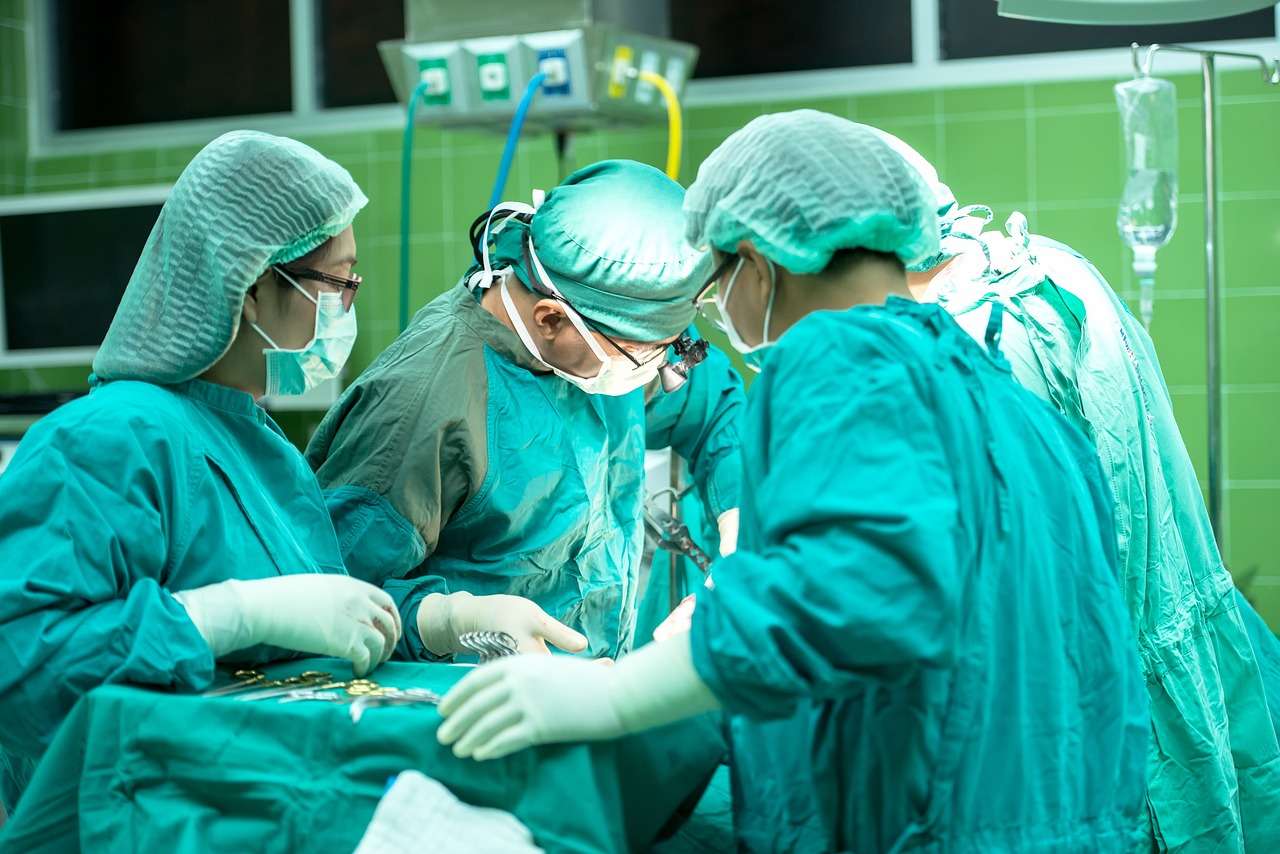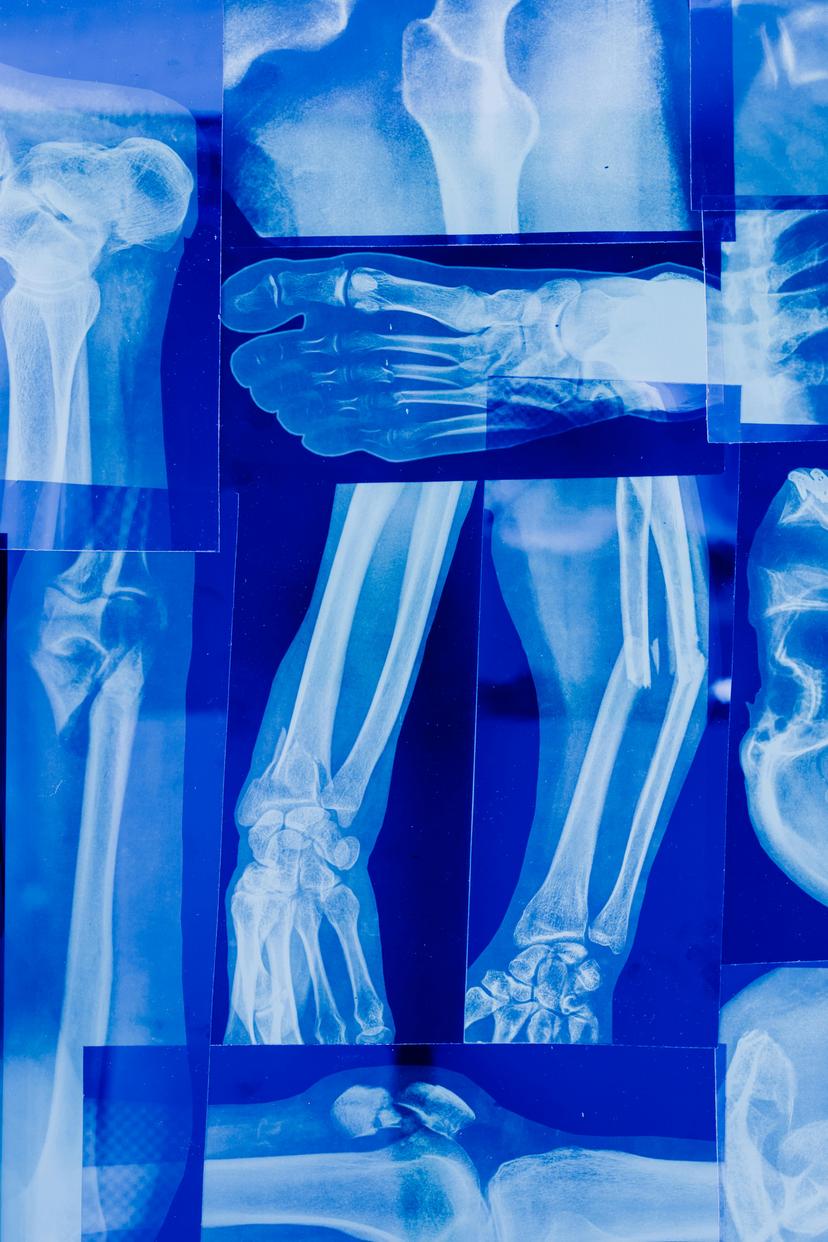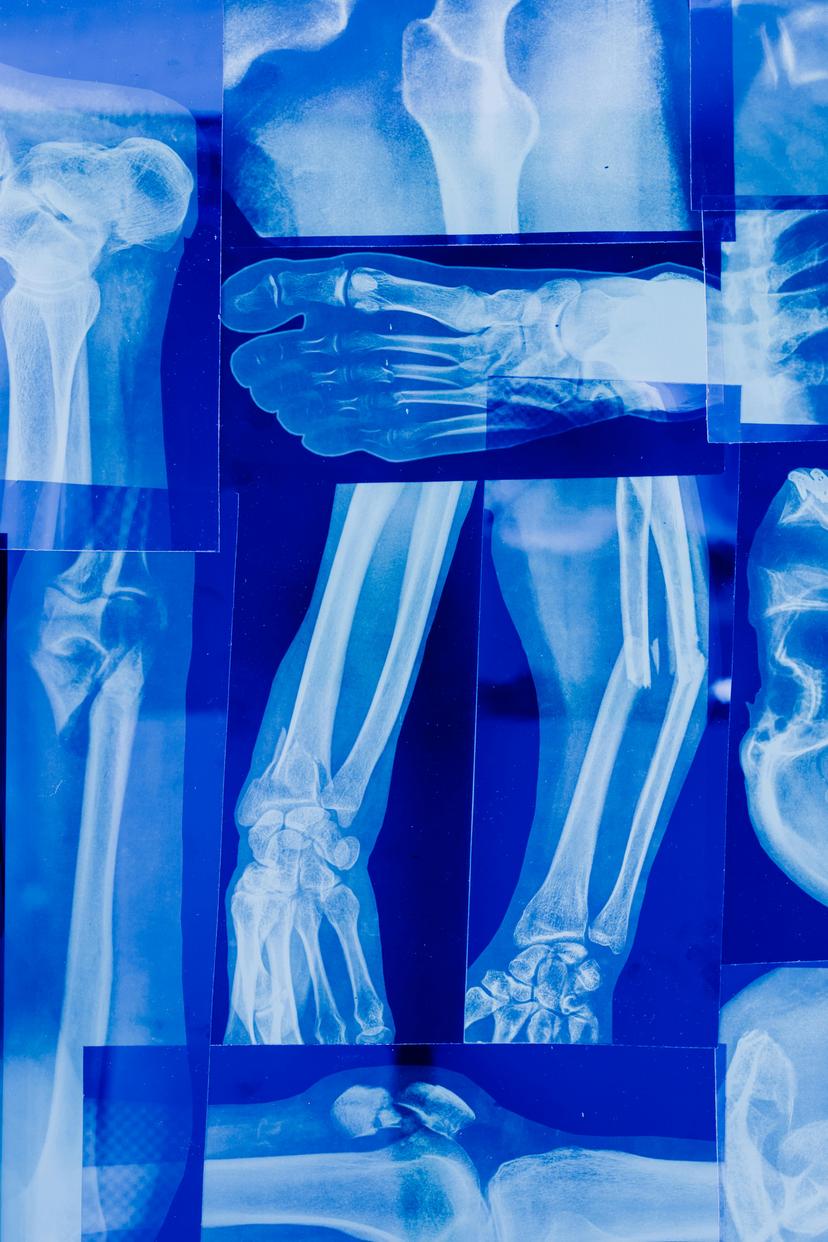
Advanced Orthopedic Surgeries in the UK: What Patients from Russia Need to Know
26 Jul, 2024
 Healthtrip Team
Healthtrip TeamNavigating the complexities of healthcare abroad, especially for gynaecological surgeries, can be daunting for Russian patients. Concerns about language barriers, quality of care, and finding the right specialist can add to the stress. Without proper guidance, the process can feel overwhelming. Misunderstandings due to language differences, unfamiliarity with the healthcare system, and lack of knowledge about top hospitals can lead to anxiety and potentially compromise the quality of care received. This comprehensive guide aims to simplify the journey for Russian patients seeking gynaecological surgeries in the UK. From understanding the types of surgeries available to identifying top hospitals and navigating the healthcare system, this guide provides all the essential information to ensure a smooth and successful medical experience.
Most popular procedures in India
Advanced Orthopedic Treatments Available in the UK
The UK is a leader in orthopedic care, offering a wide range of advanced treatments that incorporate cutting-edge technology and highly specialized techniques. Here’s a detailed look at some of the most advanced orthopedic treatments available in the UK:
Wellness Treatments
Give yourself the time to relax
Lowest Prices Guaranteed!

Lowest Prices Guaranteed!
1. Joint Replacement Surgery
a. Hip Replacement
Hip replacement surgery in the UK has evolved significantly with the advent of minimally invasive techniques and robotic assistance. Minimally invasive hip replacement involves making smaller incisions, typically around 3 to 5 cm compared to the traditional 10 to 15 cm. This approach reduces muscle damage and often results in a shorter hospital stay of 1 to 2 days, compared to 3 to 5 days with traditional surgery. The recovery time is also shorter, usually 4 to 6 weeks versus 8 to 12 weeks with traditional methods. Robotic-assisted hip replacement, utilizing systems like the Mako Robotic-Arm Assisted Surgery, offers precision with an accuracy rate of up to 1 millimeter, improving implant placement and reducing revision rates by up to 20%.
b. Knee Replacement
Knee replacement procedures in the UK have also advanced with techniques such as partial knee replacement and custom knee implants. Partial knee replacement targets only the damaged portion of the knee, using incisions of 5 to 7 cm and typically requiring a hospital stay of 1 to 2 days. The recovery time is about 4 to 6 weeks, compared to 6 to 8 weeks for total knee replacement. The patient satisfaction rate for partial knee replacement is around 95%. Custom knee implants, designed using 3D imaging technology, offer a personalized fit that can reduce the likelihood of revision surgery by up to 30%, improving overall knee function and alignment.
2. Spinal Surgery
A. Minimally Invasive Spine Surgery (MISS)
Minimally invasive spine surgery (MISS) techniques in the UK include endoscopic discectomy and percutaneous spinal fixation. Endoscopic discectomy involves a small incision of 1 to 2 cm and usually results in a hospital stay of just 1 day. Recovery time is typically 2 to 4 weeks, compared to 4 to 6 weeks with traditional discectomy. The success rate for pain relief with this procedure is approximately 80% to 90%. Percutaneous spinal fixation uses incisions of 2 to 3 cm and allows for a hospital stay of 1 to 2 days. Recovery time is about 3 to 4 weeks, and the technique reduces the risk of complications compared to traditional open spinal surgery.
B. Spinal Fusion
Robotic-assisted spinal fusion and advanced navigation systems are at the forefront of spinal surgery in the UK. Robotic-assisted spinal fusion offers high precision with an accuracy rate of up to 98%, reducing the need for revision surgery by up to 50% compared to traditional methods. Navigation systems, such as Brainlab Spine Navigation, provide real-time imaging that improves screw placement accuracy by up to 25%, significantly reducing surgical errors and enhancing patient safety.
3. Sports Medicine
A. Arthroscopic Surgery
Arthroscopic surgery in the UK includes procedures like knee and shoulder arthroscopy, which benefit from advanced technology and minimally invasive techniques. Knee arthroscopy uses incisions of 0.5 to 1 cm and generally requires a hospital stay of just 1 day. Recovery time is around 2 to 4 weeks, compared to 6 to 8 weeks for open surgery. The success rate for improving knee function and relieving pain is around 85% to 90%. Shoulder arthroscopy involves incisions of 1 cm or less, with a hospital stay of 1 day and a recovery period of 4 to 6 weeks. The success rate for rotator cuff repairs through this method is approximately 80% to 90%.
B. Advanced Ligament Repair
In the field of advanced ligament repair, techniques such as ACL reconstruction and cartilage repair offer significant benefits. ACL reconstruction involves using grafts with a 90% success rate in restoring knee stability. The minimally invasive approach includes incisions of 1 to 2 cm and requires a recovery period of 6 to 9 months. Cartilage repair and regeneration techniques, including microfracture and autologous chondrocyte implantation (ACI), have success rates of 70% to 80% in improving joint function and reducing pain, offering patients innovative solutions for damaged cartilage.
4. Robotic and Computer-Assisted Surgery
A. Robotic-Assisted Surgery
Robotic-assisted surgeries, such as those performed with the Mako Robotic-Arm Assisted Surgery system, are revolutionizing orthopedic care in the UK. This technology allows for exceptional precision in joint replacements and spinal surgeries, with accuracy rates reaching up to 98%. The robots assist in precise alignment and placement of implants, which can significantly reduce the likelihood of complications and revision surgeries. For instance, the use of robotic systems in knee replacement surgery can reduce the risk of misalignment and improve overall outcomes, with a notable decrease in the rate of postoperative complications.
B. Computer-Assisted Navigation Systems
Advanced computer-assisted navigation systems, such as Brainlab Spine Navigation, are employed in complex spinal surgeries. These systems use real-time imaging and mapping to guide surgeons, improving screw placement accuracy by up to 25%. This precision enhances surgical outcomes and patient safety, reducing the need for revision surgeries and optimizing recovery times.
5. Regenerative Medicine
A. Stem Cell Therapy
Stem cell therapy represents a cutting-edge approach in orthopedic care, particularly for joint and cartilage regeneration. In the UK, this therapy involves harvesting stem cells from the patient's own body and injecting them into damaged tissues to promote healing. Success rates for improving joint function and reducing pain with stem cell therapy range from 60% to 80%, offering a promising alternative to traditional surgical methods.
B. Platelet-Rich Plasma (PRP) Therapy
PRP therapy is another innovative treatment involving the concentration of platelets from the patient's blood to enhance healing in damaged tissues. This treatment has shown success rates of 60% to 80% for pain relief and improved joint function. PRP therapy is particularly effective in treating conditions like tendinitis and arthritis, providing a less invasive option compared to surgery.
6. Patient Support and Postoperative Care
A. Multidisciplinary Care Teams
In the UK, orthopedic patients benefit from a multidisciplinary approach that includes not only surgeons but also physiotherapists, pain management specialists, and rehabilitation experts. This comprehensive care model ensures that patients receive holistic support throughout their treatment journey, from preoperative planning to postoperative recovery.
B. Advanced Rehabilitation Programs
Postoperative care in the UK is supported by advanced rehabilitation programs tailored to each patient's specific needs. These programs often include physical therapy, occupational therapy, and pain management services. For example, robotic-assisted gait training and customized physical therapy plans help accelerate recovery and enhance functional outcomes.
7. International Patient Services
A. Language Support and Translation Services
To address language barriers, many top hospitals in the UK offer specialized international patient services, including multilingual staff and translation services. These services ensure clear communication between patients and healthcare providers, reducing the risk of misunderstandings and enhancing the overall patient experience.
B. Concierge Services
Top UK hospitals often provide concierge services to international patients, including assistance with travel arrangements, accommodation, and local logistics. These services help streamline the process for patients travelling from abroad, making their medical journey as smooth and stress-free as possible.
By incorporating sections on robotic and computer-assisted surgery, regenerative medicine, patient support, and international patient services, the content provides a more comprehensive overview of advanced orthopedic treatments in the UK. These additions highlight the UK's commitment to integrating innovative technologies and offering robust support systems for patients, ensuring an exceptional standard of care and a seamless medical experience.
The UK’s advanced orthopedic treatments showcase the integration of cutting-edge technology and expert surgical techniques. From minimally invasive joint replacements and robotic-assisted spinal surgeries to advanced sports medicine solutions, these treatments provide patients with effective, personalized care. The combination of high precision, reduced recovery times, and improved functional outcomes underscore the UK’s commitment to delivering top-tier orthopedic care.'
What Patients from Russia Should Know Before Traveling
1. Understanding the Healthcare System
A. Familiarize Yourself with the UK Healthcare System: The UK’s healthcare system, primarily the NHS (National Health Service), operates differently from Russia’s system. However, as an international patient, you will typically be dealing with private healthcare providers. Research the specific hospital or clinic you plan to visit, understand their processes, and review their accreditation and reputation.
B. Know the Costs: Private healthcare in the UK can be expensive. Confirm the total cost of your treatment, including surgery, hospital stays, and any additional fees for consultations or aftercare. Make sure you understand what is covered by your insurance and what will be out-of-pocket expenses.
2. Language and Communication
A. Language Barriers: Many UK hospitals offer translation and language support services for international patients. Ensure that the hospital or clinic provides multilingual staff or access to professional translation services to avoid misunderstandings during consultations and treatment.
B. Medical Records and Documentation: Bring comprehensive medical records, including previous diagnoses, treatment history, and any relevant test results. Ensure these documents are translated into English if necessary.
3. Visa and Travel Arrangements
A. Visa Requirements: Check the visa requirements for travelling to the UK for medical reasons. You may need a standard tourist visa or a specific medical visa. Ensure all paperwork is completed well in advance of your trip.
B. Travel and Accommodation: Plan your travel and accommodation in advance. Many hospitals offer concierge services to help with travel arrangements and finding suitable accommodation. Verify if the hospital can assist with these arrangements.
4. Medical Preparation
A. Preoperative Instructions: Follow all preoperative instructions given by your healthcare provider. This may include dietary restrictions, medication adjustments, and specific preparations prior to surgery.
B. Postoperative Care: Plan for postoperative care and rehabilitation. Discuss with your healthcare provider what follow-up appointments will be needed and how they can be arranged.
5. Cultural and Legal Considerations
A. Cultural Differences: Be aware of cultural differences and practices in the UK. Understanding the healthcare provider’s expectations and communication style can help in building a good rapport with your medical team.
B. Legal Aspects: Understand your rights as an international patient in the UK. Familiarize yourself with patient consent forms and any legal documents you may need to sign.
6. Financial and Insurance Aspects
A. Medical Insurance: Ensure you have adequate medical insurance coverage for international treatments. Verify if your insurance covers treatments in the UK and if there are any specific procedures for claiming.
B. Payment Methods: Be prepared to handle payments. Some hospitals may require a deposit before treatment begins, so make sure you have access to sufficient funds or credit.
7. Emergency Contacts and Support
A. Emergency Contacts: Keep a list of emergency contacts, including the hospital’s contact details and local emergency services. Ensure that you have a way to communicate with family and friends back home.
B. Support Network: If possible, travel with a companion who can help with communication, transportation, and emotional support during your treatment and recovery.
8. Post-Treatment Follow-Up
A. Arrange Follow-Up Care: Discuss and arrange follow-up care with your healthcare provider before leaving the UK. Understand how you can access support and guidance once you return to Russia.
B. Recovery and Rehabilitation: Plan for recovery and rehabilitation upon your return. Coordinate with local healthcare providers to continue your care as needed.
By addressing these considerations, patients from Russia can navigate their medical journey to the UK with greater confidence and clarity, ensuring a more seamless and successful treatment experience.
Related Blogs

What to Expect When Traveling Abroad for Surgery: A Complete Patient Guide
Get ready for a seamless healthcare experience abroad with our

Transforming Healthcare, One Patient at a Time at The Clementine Churchill Hospital
The Clementine Churchill Hospital, part of Circle Health Group, offers

Transforming Healthcare, One Patient at a Time at The Clementine Churchill Hospital
The Clementine Churchill Hospital, part of Circle Health Group, offers

Discovering Wellness at King's
Experience world-class healthcare at King's College Hospital London, a leading

Knee Ligament Injury: Causes, Symptoms, and Treatment
Get treated for knee ligament injury in India with Healthtrip

Knee Osteoarthritis: Symptoms, Causes, and Treatment
Get treated for knee osteoarthritis in India with Healthtrip and










